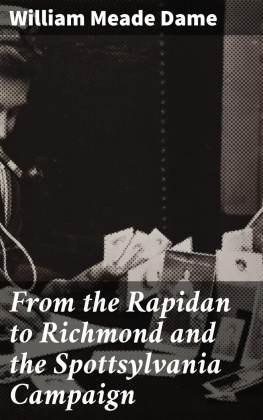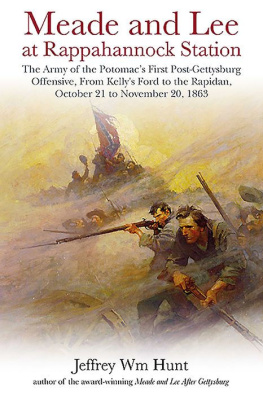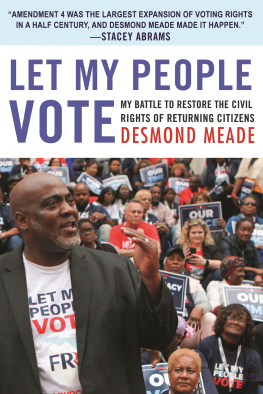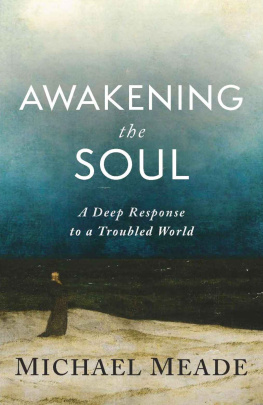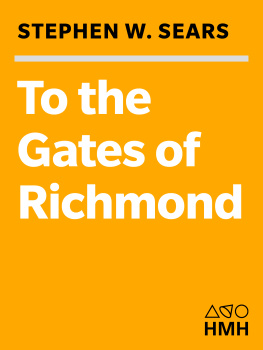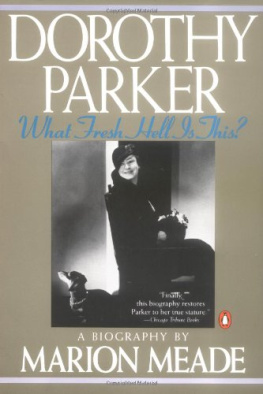INTRODUCTORY
Table of Contents
The Cause of Conflict and the Call to Arms
In 1861 a ringing call came to the manhood of the South. The world knows how the men of the South answered that call. Dropping everything, they came from mountains, valleys and plainsfrom Maryland to Texas, they eagerly crowded to the front, and stood to arms. What for? What moved them? What was in their minds?
Shallow-minded writers have tried hard to make it appear that slavery was the cause of that war; that the Southern men fought to keep their slaves. They utterly miss the point, or purposely pervert the truth.
In days gone by, the theological schoolmen held hot contention over the question as to the kind of wood the Cross of Calvary was made from. In their zeal over this trivial matter, they lost sight of the great thing that did matter; the mighty transaction, and purpose displayed upon that Cross.
In the causes of that war, slavery was only a detail and an occasion. Back of that lay an immensely greater thing; the defense of their rightsthe most sacred cause given men on earth, to maintain at every cost. It is the cause of humanity. Through ages it has been, pre-eminently, the cause of the Anglo-Saxon race, for which countless heroes have died. With those men it was to defend the rights of their States to control their own affairs, without dictation from anybody outside; a right not given, but guaranteed by the Constitution, which those States accepted, most distinctly, under that condition.
It was for that these men came. This was just what they had in their minds; to uphold that solemnly guaranteed constitutional right, distinctly binding all the parties to that compact. The South pleaded with the other parties to the Constitution to observe their guarantee; when they refused, and talked of force, then the men of the South got their guns and came to see about it.
They were Anglo-Saxons. What could you expect? Their fathers had fought and died on exactly this issuethey could do no less. As their noble fathers, so their noble sons pledged their lives, and their sacred honor to uphold the same great causepeaceably if they could; forcibly if they must.
Those Who Answered the Call
So the men of the South came together. They came from every rank and calling of lifeclergymen, bishops, doctors, lawyers, statesmen, governors of states, judges, editors, merchants, mechanics, farmers. One bishop became a lieutenant general; one clergyman, chief of artillery, Army of Northern Virginia. In one artillery battalion three clergymen were cannoneers at the guns. All the students of one Theological Seminary volunteered, and three fell in battle, and all but one were wounded. They came of every age. I personally know of six men over sixty years who volunteered, and served in the ranks, throughout the war; and in the Army of Northern Virginia, more than ten thousand men were under eighteen years of age, many of them sixteen years.
They came of every social condition of life: some of them were the most prominent men in the professional, social, and political life of their States; owners of great estates, employing many slaves; and thousands of them, horny-handed sons of toil, earning their daily bread by their daily labor, who never owned a slave and never would.
There came men of every degree of intellectual equipmentsome of them could hardly read, and per contra, in my battery, at the mock burial of a pet crow, there were delivered an original Greek ode, an original Latin oration, and two brilliant eulogies in Englishall in honor of that crow; very high obsequies had that bird.
Men who served as cannoneers of that same battery, in after life came to fill the highest positions of trust and influencefrom governors and professors of universities, downward; and one became Speaker of the House of Representatives in the United States Congress. Also, it is to be noted that twenty-one men who served in the ranks of the Confederate Army became Bishops of the Episcopal Church after the war.
Of the men who thus gathered from all the Southern land, the first raised regiments were drawn to Virginia, and there organized into an army whose duty it was to cover Richmond, the Capital of the Confederacyjust one hundred miles from Washington, which would naturally be the center of military activities of the hostile armies.
An Army of Volunteers
The body, thus organized, was composed entirely of volunteers. Every man in it was there because he wanted to come as his solemn duty. It was made up of regiments from every State in the SouthMaryland, Virginia, North and South Carolina, Georgia, Florida, Alabama, Mississippi, Louisiana, Texas, Arkansas and Tennessee. Each State had its quota, and there were many individual volunteers from Kentucky, Missouri and elsewhere. That army was baptized by a name that was to become immortal in the annals of warThe Army of Northern Virginia.
What memories cluster around that name! Great soldiers, and military critics of all nations of Christendom, including even the men who fought it, have voiced their opinion of that army, and given it high praise. Many of them, duly considering its spirit, and recorded deeds, and the tremendous odds against which it fought, have claimed for it the highest place on the roll of honor, and in the Hall of Fame, among all the armies of history.
Truly it deserves high place! when you think that after four years of heroic courage, devotion, and endurance, never more than half fed, poorly supplied with clothes, often scant of ammunition, holding the field after every battle, that it fought, till the end, worn out at last, it disbanded at Appomattox, when only eight thousand hungry men remained with arms in their hands, and they, defiant, and fighting still, when the white flags began to pass. They surrendered then only because General Lee said they must, because he would not vainly sacrifice another man; and they wept like broken-hearted children when they heard his orders. They would have fought on till the last man dropped, but General Lee said: No, you, my men, go home and serve your country in peace as you have done in war.
Our Great Leader
They did as General Lee told them to do, and it was the indomitable courage of those men and of the women of their land, who were just as brave, at home, as the men were, at the front, which has made the South rise from its ruins and blossom as the rose as it does this day.
Thus yielding to overwhelming numbers and resources, the Army of Northern Virginia died. But its glory has not died, and the splendor of its deeds has not, and will not grow dim.
As, in vision, I look across the long years that have pressed their length between the now and then, I can see that Army of Northern Virginia on the march. At its head rides one august and knightly figure, Robert E. Lee, the knightliest gentleman, and the saintliest hero that our race has bred. He is on old Traveler, almost as famous as his master. On his right rides that thunderbolt of war, Stonewall Jackson, on Little Sorrel, with whose fame the world was ringing when he fell. On Lees left, on his beautiful mare, Lady Annie, the bright, flashing cavalier, Jeb Stuart, the darling of the Army.


